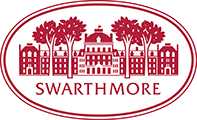Hackers especially love the holidays because there are lots of new, unprotected computers to compromise and silently take over. Even without new computers to exploit, there has been an alarming increase in the amount of malware (viruses, spyware, etc.) being installed recently on Swarthmore community systems.
The following tips will help keep your existing computer (regardless of operating system), and especially new out-of-the-box systems, more resistant to viruses, spyware and other malware. These tips are crucial to protecting the contents and integrity of your office computer. Of course, these tips also apply to your home computer.
For more security tips, see https://blogs.swarthmore.edu/its/category/security/ (or click on the Security category on the lower right)
1. Patching
- keep operating systems and applications up to date (especially popular software like Acrobat, Flash Player, Java, QuickTime, etc.)
- if an auto-update function is available for an application, enable it
2. Anti-virus & Anti-spyware
- all computers should run anti-virus and anti-spyware (see below for some recommendations & check with ITS to learn if a program you’re considering is legitimate)
- these programs should be configured to regularly update their signatures, rules, etc. often (at least once a day)
- file scanning should be scheduled to occur regularly
- note that new PC’s often ship with anti-virus software installed but enabled only for a short trial period (e.g., 90 days)
- never click on any of those pop-ups that claim your computer might have a virus; your computer is probably fine but definitely *won’t* be after clicking on the pop-up
3. Computer-based Firewalls
- all computers should have their firewalls enabled
- a “hardware” firewall (e.g, in an access point, router, etc.) does not negate the need for one on your computer
4. Use Multiple Browsers
- consider using one browser application (e.g. Firefox) for all your secure browsing to sites for banking, shopping, etc.
- use a different browser (e.g., Opera, Chrome, Internet Explorer, etc.) for all other Internet browsing activity
5. Don’t Use “Local Administrator” Privileges or Accounts as Your “Everyday” Account
- this is particularly important for Windows users but applies to Macs and Linux, as well
- the majority of computers broken into are a direct result of the user having “administrator” rights
6. Backup Your Data Regularly
- use backup software that regularly saves all your important documents and files
- you’ll be able to recover your data if the hard drive fails (assume it will) or a virus infects your machine
7. Strong Passwords
- whether it’s for your email, network account, web site, etc., use passwords that are hard to guess or predict
- for example, don’t use your user ID, any subset of your name, etc. and consider using a symbol like @, $, %, ! and so on (also see http://www.swarthmore.edu/informationsecurity.xml)
- don’t use the same password for all your accounts; if one of your accounts gets broken into, then they’re all exposed!
~~~~~~~~~
PC’s at Swarthmore are configured with anti-virus and anti-spyware products. For home use, these products are available from vendors like McAfee, Symantec, Trend Micro and a number of others. If you’re looking for free anti-virus software (personal use only), you could try AVG (http://free.avg.com/download-avg-anti-virus-free-edition) or Avast (http://www.avast.com/eng/download-avast-home.html). For free anti-spyware, one of the best out there is Spybot – Search & Destroy (http://www.safer-networking.org/en/spybotsd/index.html). But, as I mentioned above, be very careful about fakes, imposters, etc. and especially those that make claims via pop-ups or “alarming” web pages ads!
Finally, remember that ITS will never ask you for your password.
Have a safe and happy holiday,
Nick
p.s. – One last holiday tip: before using those shiny new digital picture frames, scan them first with anti-virus software. Believe it or not, a large quantity of them, historically, have been found to be infected by the time they reach stores!
